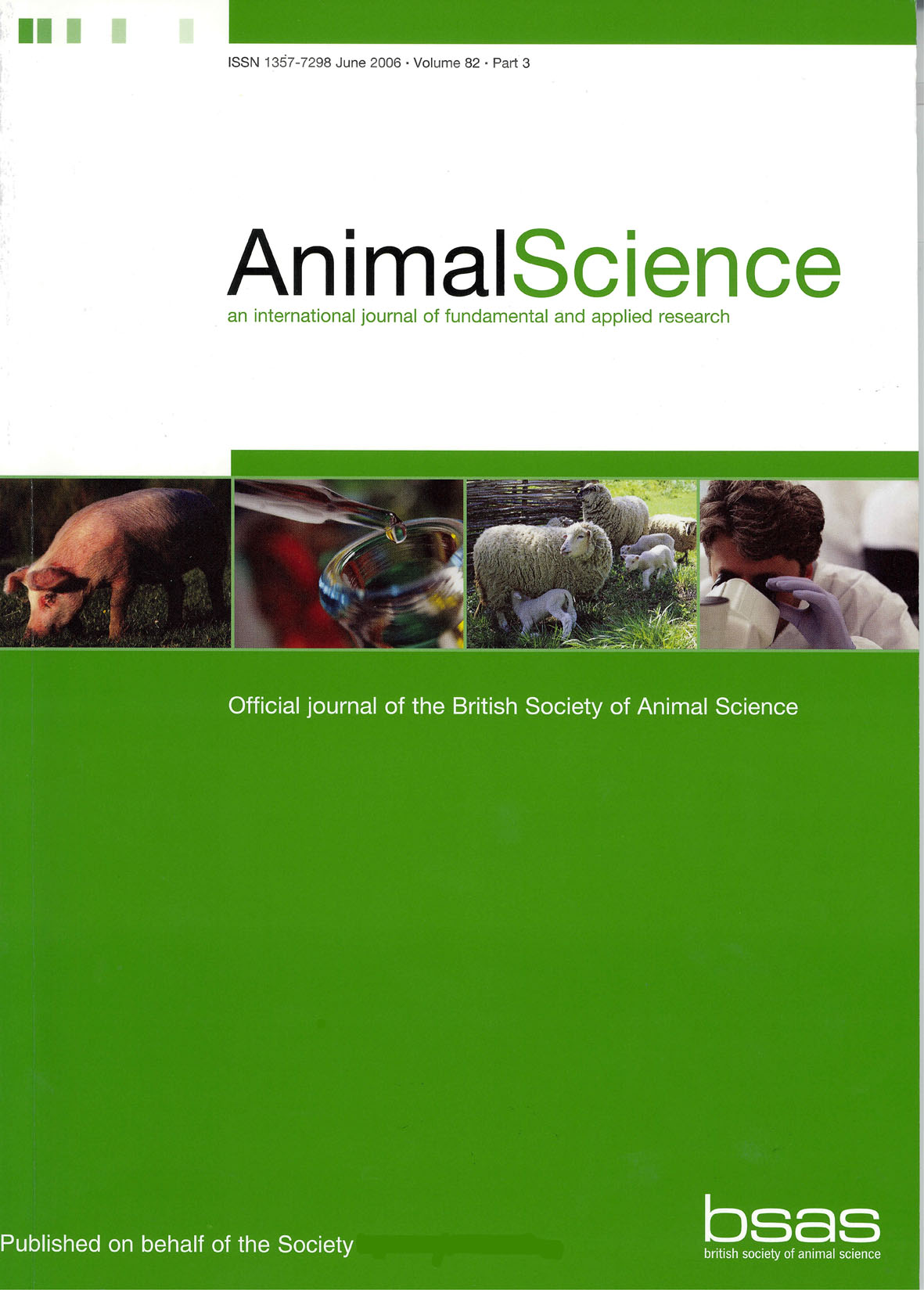Crossref Citations
This article has been cited by the following publications. This list is generated based on data provided by Crossref.
Broadbent, P. J.
Ball, C.
and
Dodsworth, T. L.
1976.
Effects of using rations of reduced energy concentration for intensively reared beef cattle from 250 kg live weight to slaughter.
Animal Science,
Vol. 22,
Issue. 2,
p.
207.
Broadbent, P. J.
Ball, C.
and
Dodsworth, T. L.
1976.
Growth and carcass characteristics of purebred and crossbred cattle with special reference to their carcass lean:bone ratios.
Animal Science,
Vol. 23,
Issue. 3,
p.
341.
NEWBOLD, J.R.
1987.
Recent Advances in Animal Nutrition.
p.
143.
NEWBOLD, J.R.
1988.
Recent Developments in Ruminant Nutrition – 2.
p.
323.

